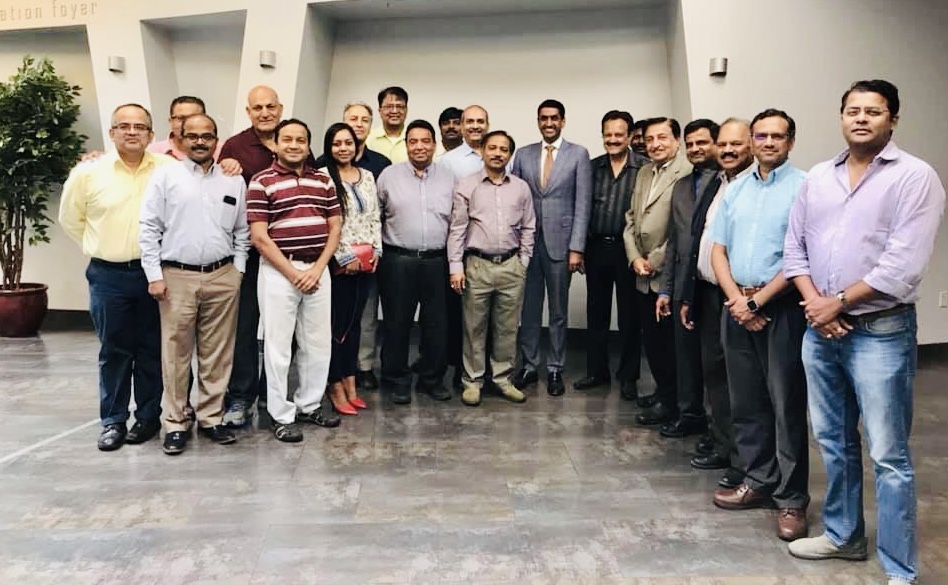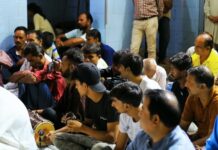India Post News Service
FREMONT, California: India attained Independence from the British colonization in 1947 over genocide and massive anarchy with the Partition of the country and formation of Pakistan based on the tenets of the Muslim League. India remained and continues to stay secular in its bearing and by the Constitution.
Kashmir however, due to the aberration of its law and order by the Article 370 of the Constitution imposed after Independence, underwent many attacks by Pakistan-based terrorist outfits, leading to even religious apartheid in the 1990s.
Congressman Ro Khanna interacts with Indian-Americans representing various community organizations in his Congressional district to engage in constructive dialogue on the future of the community.
Questions were asked on the Congressman’s joining the Pakistan Caucus recently on which he clarified that his position is in favor of US’s interest, to work with Pakistan in order to get the American troops back from Afghanistan. The Congressman is also part of the India Caucus along with many other caucuses within the US Congress and he said that the India-US partnership is critical for the 21st century.
The issues pertaining to Jammu and Kashmir, a long-time terror-inflicted state in India were also in focus.
“Kashmir is an internal matter for India’s democracy and Pakistan PM Imran Khan needs to cool his heated rhetoric and not escalate to a war or conflict,” he said.
“Imran Khan’s rhetoric of war with India is absolutely ridiculous.”
Ro has been the leading voice in Congress on giving India the equivalent of NATO status on defense from the armed services committee. The Kashmiri-American community in the Valley appreciated Congressman Ro Khanna’s support in the democratic resolution of conflict, uplifting communities from poverty and terror.
Ro has consistently co-sponsored legislation condemning terrorist killings in Kashmir.
While the rest of India currently boasts a rapidly growing economy with a GDP growth of 6.2 per cent, Kashmir hit the staggering low of -1.5 per cent in 2015 according to the Centre for Monitoring Indian Economy (CMIE). Abrogation of Article 370 and Article 35A not only aspire to alter the economic situation in Kashmir but promises to integrate the people with rest of India in terms of law and order, human rights, minority benefits, job opportunities, and infrastructure.
Kashmiri women can now marry people from outside the state and not lose their property rights. Much success is envisioned to integrate the LGBTQ community and the tribal scheduled caste and scheduled tribe communities as well to avail government-sponsored social welfare schemes in India.







